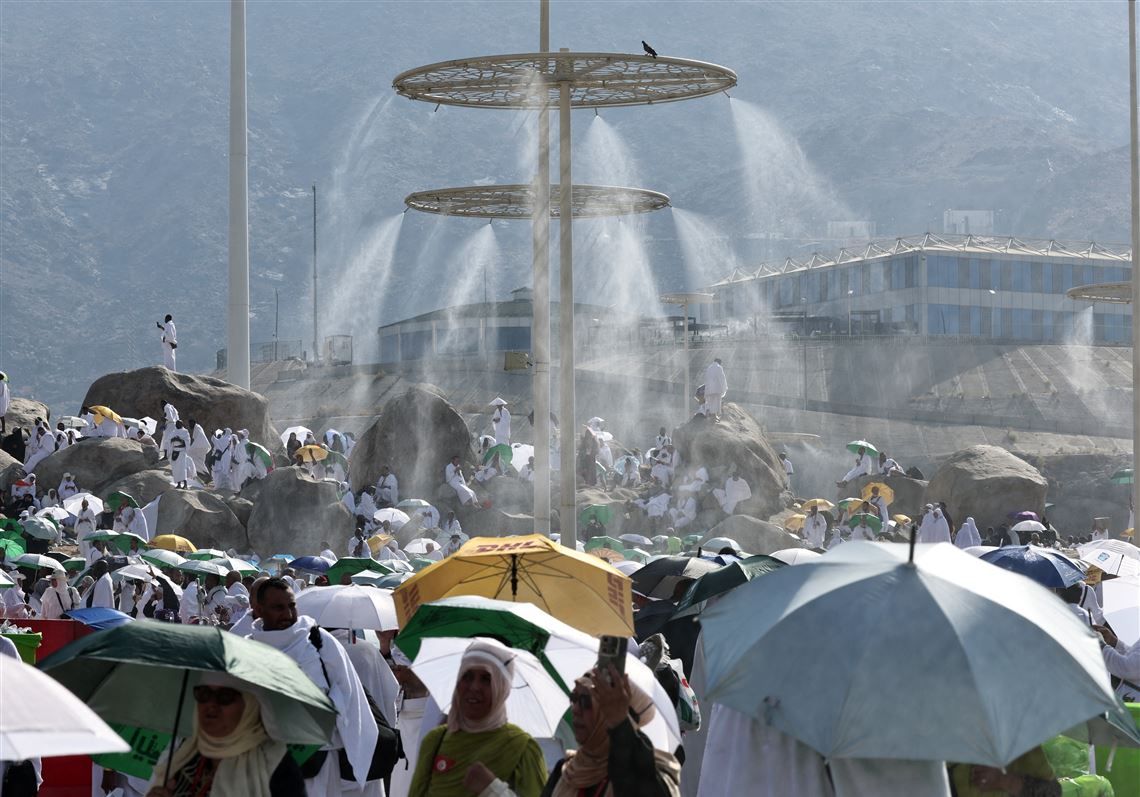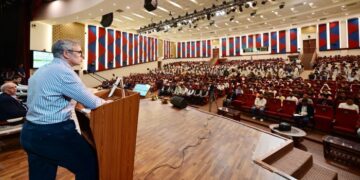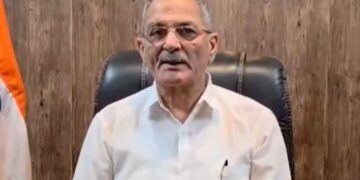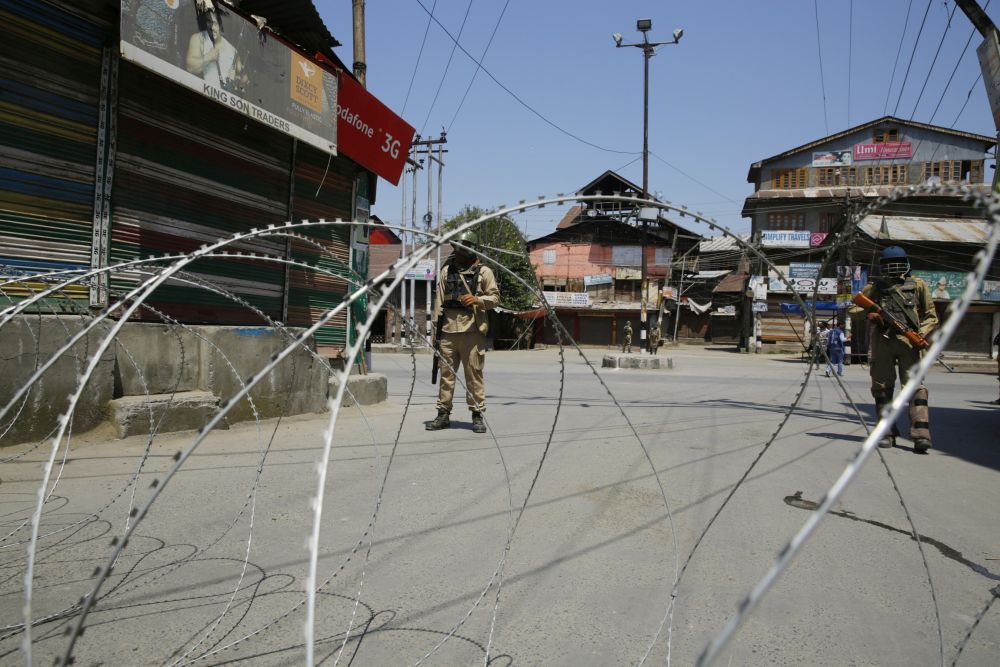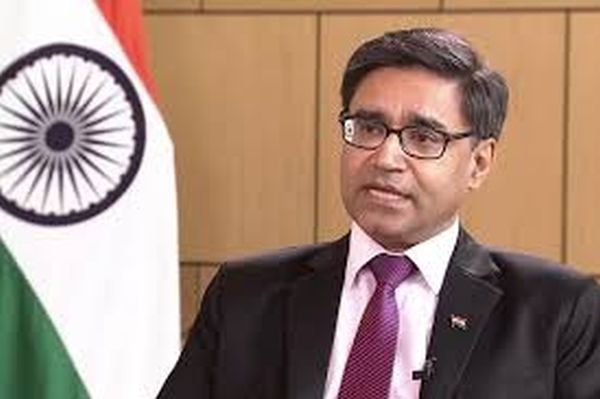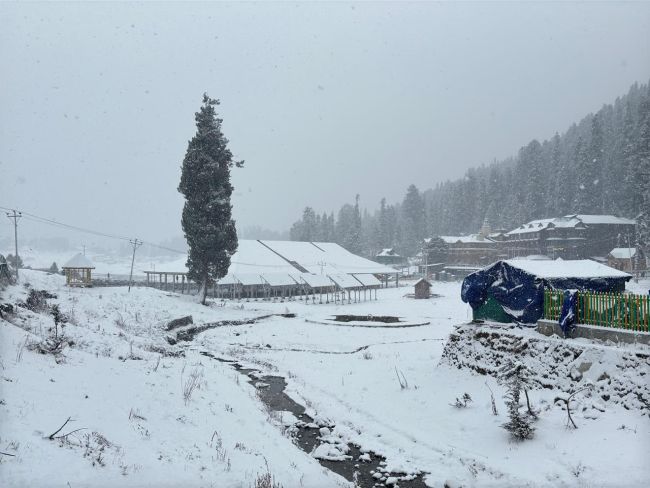Srinagar: From 35,000 in 2017 to as low as over 4100 applications this year, the number of people aspiring to embark on the Hajj pilgrimage is steadily declining in Jammu and Kashmir.
The numbers, as per the officials, have further dwindled when over 700 pilgrims who had applied for the pilgrimage opted ‘out’ of Hajj 2025.
As per the official details as reported by the news agency KNO, a total of 4,100 people from Jammu and Kashmir had applied for Hajj 2025, out of which 3,601 were confirmed in the first list, with 21 more added under the Mehram quota, taking the total number of pilgrims proceeding for Hajj to 3,622.
Dr Shujaat Ahmad Qureshi, Executive Officer, J&K Haj Committee, confirmed that all 3,622 selected pilgrims have completed the payment of the first and second installments.
The top official said that as per the quota allocation, India has received a total of 1,75,025 slots for Hajj 2025, out of which 70 percent (1,22,550) is assigned to the Hajj Committee of India (HCOI).
He said that Jammu and Kashmir has been allocated 4.89 percent of India’s quota, along with an additional 2,000 slots, bringing the total to approximately 7,981.
As per the details, additionally, 14 private Hajj Group Operators (HGOs) in Jammu and Kashmir have been allotted a total quota of 750 slots for this year.
The Hajj journey from Jammu and Kashmir is expected to begin from the last week of April.
Notably, following a repeated low response due to rising costs for Hajj pilgrimage, the authorities here were left with no option but to extend dates for turning in applications for the Hajj 2025.
Despite multiple extensions for submitting Hajj forms, Jammu and Kashmir’s Hajj Committee has ended with just 4100 applications, a decrease of more than 48 percent from the previous year.
According to the official data, in 2024, it received 8,147 Hajj application forms against the allocated quota of 8,200.
As per the officials, 2023 has recorded the highest-ever pilgrim numbers with over 12,000 pilgrims embarking on the holy journey from Jammu and Kashmir.
Official data reveals that 35,215 people had planned to embark on the pilgrimage in 2017, followed by 32,330 applications from various districts in Jammu and Kashmir in 2018.
Hajj authorities received 21,566 applications for the pilgrimage in 2019, with 2020 witnessing no applications owing to the Covid-19 pandemic lockdown.
Despite the pandemic, the data reveals that more than 7,000 applications from various J&K districts were submitted in 2021 for the Hajj pilgrimage. However, the authorities subsequently cancelled the pilgrimage for a second year in a row due to the virus’ continued spread.
The comparative data for 2024 and 2025 reveals a sharp decline in all districts of Jammu and Kashmir in the number of pilgrims applying to take up the Hajj 2025 journey, with only district Doda witnessing a nominal increase of over 9 percent.
According to the data, Srinagar district, which received 2,607 Hajj applications in 2024, has registered a decline of over 64 percent for this year. It has received just over 930 applications for the Hajj 2025.
Similarly, district Budgam, which received 873 applications in 2024, this year received over 320 applications, recording a decline of over 62 percent.
District Anantnag and Bandipora also recorded a decline of over 50 percent in the number of people applying to undertake the Hajj. District Baramulla received over 345 applications against the 781 applications in 2024.
Any intending Hajj pilgrim embarking from Srinagar has to pay around Rs 4.2 lakh rupees, while from Delhi, it is Rs 3.6 lakh only. The authorities are attributing the difference in amount to airfares.
Officials said the airfare from Srinagar embarkation is Rs 1.7 lakh, while from Delhi, it is Rs 1.1 lakh for the pilgrims. However, they added that people are not bound to travel from any specific destination and are free to take up the Hajj journey from any embarkation of their choice.
People say economic realities are forcing many to de-prioritise pilgrimage in favour of essential and daily expenses.
Bashir Ahmad Bashir, a horticulture trade leader, attributes the decline in the Hajj applications to rising prices and economic strain in Jammu and Kashmir, saying the people in the region were struggling to make ends meet.
He urged the authorities to take measures which can reduce the costs involved in the holy pilgrimage, describing the pilgrimage as the most significant for the Muslims.
Many government employees said they were prioritising essential expenses such as healthcare and education of children over the pilgrimage due to financial constraints. (With inputs from KNO)

